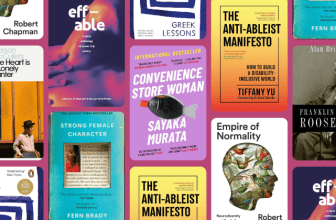Ever scroll through someone else’s vacation pictures while staring at your own empty calendar, wondering how they afford it? You’re not alone. Between rent spikes, fuel prices, and surprise grocery bills that look like car payments, travelling feels like something only influencers and retirees pull off. But for regular people, the trick isn’t being rich. It’s being strategic.
In this blog, we will share how to plan a yearly trip without wrecking your budget or your sanity.
Start With What You Can Actually Afford
Most people plan travel backwards. They fall in love with a destination first, then scramble to make the math work after the flights are already booked. That’s a fast way to turn a holiday into a financial hangover. A better way is starting from what’s realistic. Look at how much you can save in a year without skipping rent or surviving on instant noodles.
One underrated factor that often gets ignored during this early planning stage is your credit standing. If your bank account feels tight but your credit is decent, certain travel cards or reward programs can stretch your budget without debt spiralling into a mess. But if your credit’s not in great shape—or you’re not even sure where it stands—it’s smart to keep an eye on it throughout the year. Using credit monitoring tools helps you track changes, flag suspicious activity, and understand your financial flexibility before locking into big expenses like flights or lodging. It’s not about borrowing money you don’t have. It’s about understanding the tools at your disposal, so you don’t accidentally sabotage yourself halfway through planning.
Once you have a budget range—let’s say £1,200 over twelve months—you can reverse engineer everything from there: destination, duration, timing. With costs rising unpredictably in areas like airfare and lodging, working within a tight, informed budget forces smarter decisions. Not always fun decisions, but smarter.
Timing Still Beats Everything
You don’t need to become a coupon hoarder or airline points nerd to stretch a travel budget. You just need to pick the right time to go. Avoid peak season. Really. Flights and accommodations during holiday weekends or school breaks can run 2x or 3x higher for no added value.
Off-season travel is no longer some niche hack—it’s survival. Late spring or early fall usually hits the sweet spot: fewer crowds, cheaper rates, better weather. If you’ve got flexibility, use it. Mid-week flights are almost always cheaper. Booking lodging on a Sunday instead of a Friday can cut costs by 20% or more in some cities. And with more people working remote or hybrid schedules, you may have more control than you realise.
Watch trends in airfare using trackers like Hopper or Google Flights. Set alerts months in advance. Don’t wait for a “deal” post on social. By then it’s probably gone.

Local Over Luxe, Always
When travelling on a budget, chasing luxury usually ends in compromise. It’s better to go for local, walkable, and functional over something that looks expensive online. Skip the Instagrammable resort. Go for the locally owned guesthouse or Airbnb just outside the city centre.
The closer you are to major attractions, the more you’ll pay. But neighbourhoods one tube or tram stop away offer nearly the same convenience at half the price. Plus, local areas tend to have better food, lower prices, and fewer tourists asking for ranch dressing in Europe.

Typical Food Stall On the Streets Of Bangkok
Eat where locals eat. Shop where they shop. Convenience stores in Tokyo have meals better than some restaurants. Street tacos in Mexico cost less than your bottled water. The idea isn’t just to save. It’s to stop treating holidays like a temporary escape from real life and start experiencing how others actually live. That shift makes the trip better and cheaper.
The Budget Begins at Home
What you do in the other 50 weeks of the year matters more than what you do on holiday. Building a travel budget doesn’t mean cutting all fun out of your life for eleven months straight. It just means shifting your spending in small, sustainable ways.
Make coffee at home instead of grabbing it every day. Cook two more meals a week instead of ordering in. These sound obvious because they are, but they work. You’re not saving money in theory—you’re actually re-routing it. £5 here, £20 there. Multiply that by 50 weeks and you’ve got a flight.
Set up a separate savings account just for travel. Name it something fun, not “Savings Account #2.” Automate a small weekly transfer into it. When money disappears slowly, you don’t miss it. And when the time comes, you’re not panicking about where the money’s going to come from.
It’s Not Cheap, It’s Focused
There’s a weird shame people carry around planning lower-budget trips, as if travel only counts when it’s international or extravagant. That’s nonsense. A road trip to a nearby city, a cabin in the woods, a train ride to the next state—they all qualify.

View from the train travelling along the Death Railway in Thailand
Travel doesn’t have to be grand. It just has to be intentional. The point is stepping out of your routine, seeing something new, eating something unfamiliar, and breaking your own patterns. Whether you’re doing that in Portugal or in Pennsylvania doesn’t really change the mental reset it gives you.
Cutting out extras during the trip doesn’t make it “less than.” It just makes it tailored. Bring your own snacks. Walk more instead of using Uber. Focus on experiences over souvenirs. You’ll remember the hike, not the overpriced magnet.
Learn From the Year Before
Once you’ve pulled off one trip on a budget, planning the next one becomes easier. You know where you overspent. You know what wasn’t worth it. Maybe that guided tour could’ve been a podcast. Maybe the cheap hotel wasn’t worth the weird stains.
Reflecting on your last trip lets you optimise the next one. What saved you money? What cost more than expected? What would you skip or do twice? Travel budgeting, like anything else, is a skill. And skills improve with repetition.
You don’t need a new spreadsheet every time. You need a better sense of what worked. Keep notes. Seriously.
Memory Over Metrics
At the end of the year, nobody looks back fondly on how they saved 18% on lodging. They remember the late dinner in a place with plastic chairs and incredible food. The weird bus ride with no Air Con. The view they didn’t expect to find.
Budget travel doesn’t dilute experience. It sharpens it. It strips away distractions and throws you into real moments. You stop comparing yourself to other tourists because you’re too focused on not missing your train.
There’s freedom in that kind of trip. Less pressure to curate everything. More space to let it unfold. You learn to enjoy travel not because it’s luxurious, but because it’s alive.
What are your biggest budgeting tips? Perhaps you have some suggested locations where money goes further?







